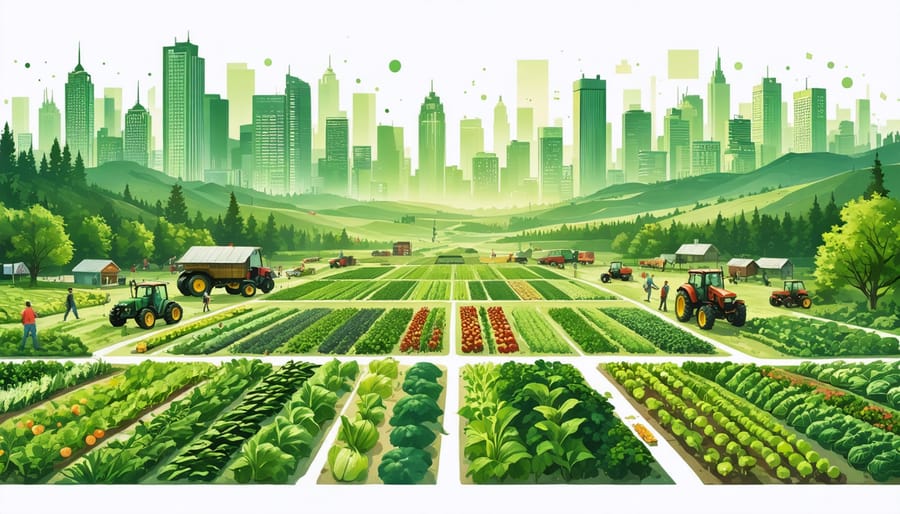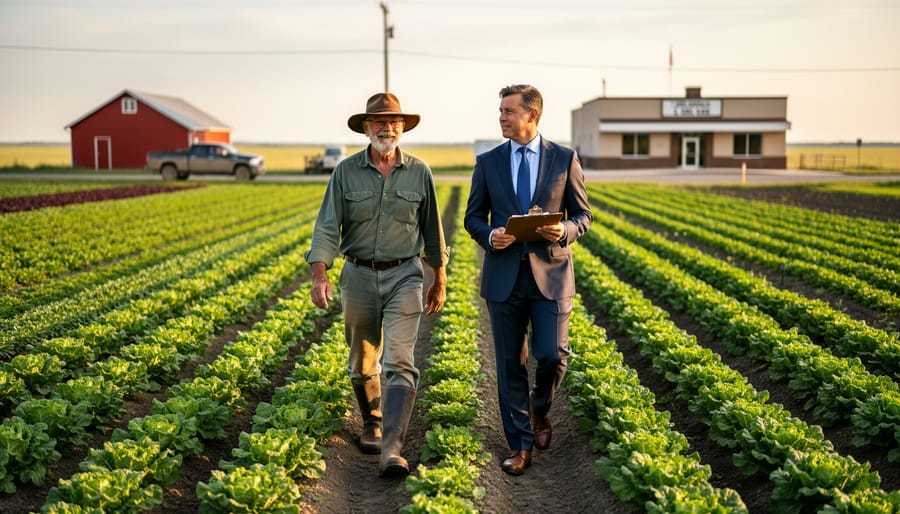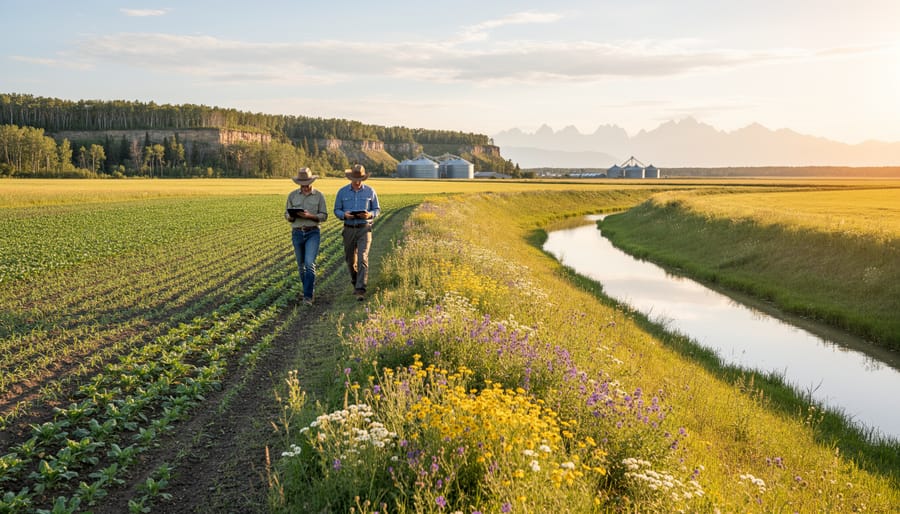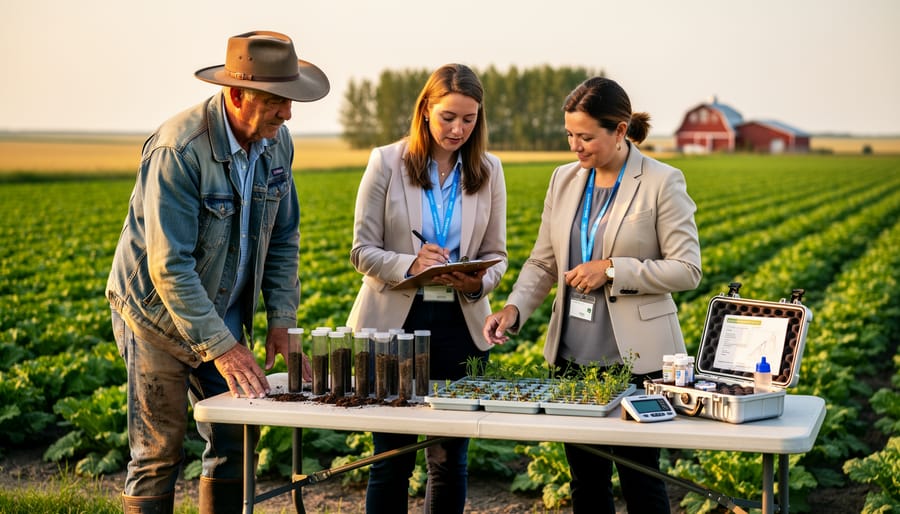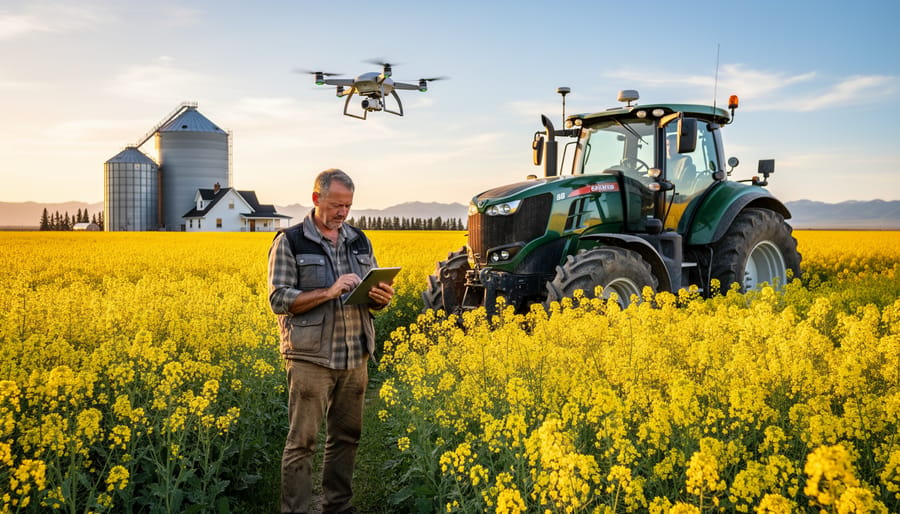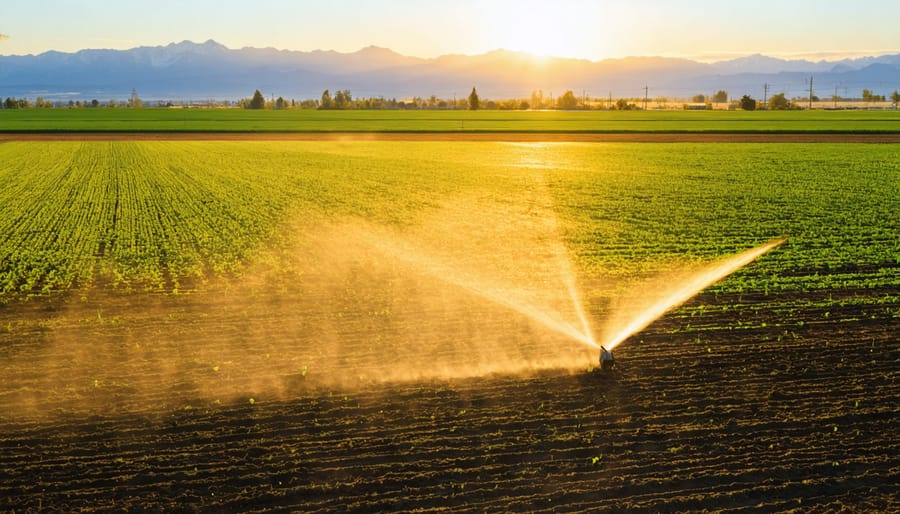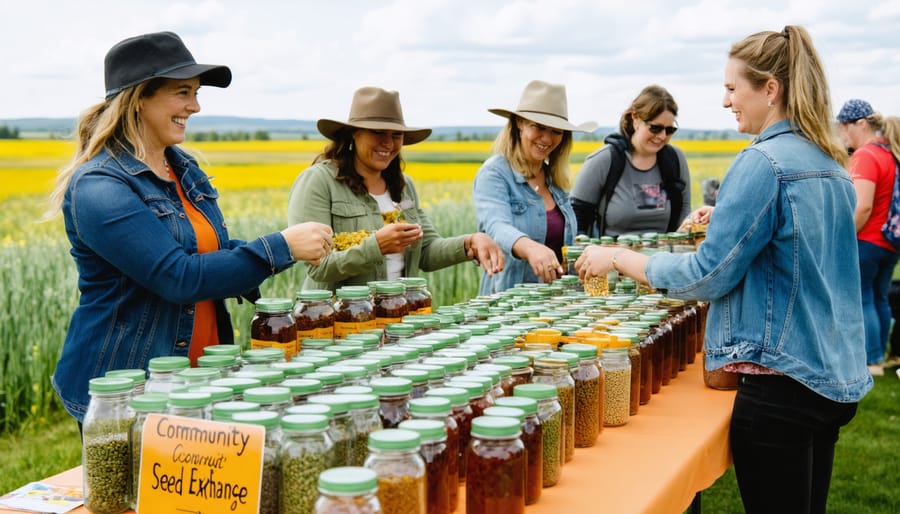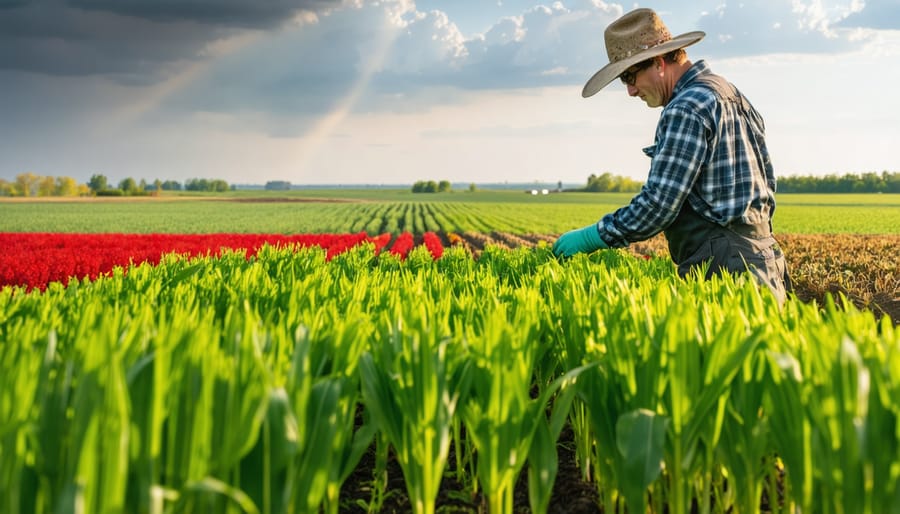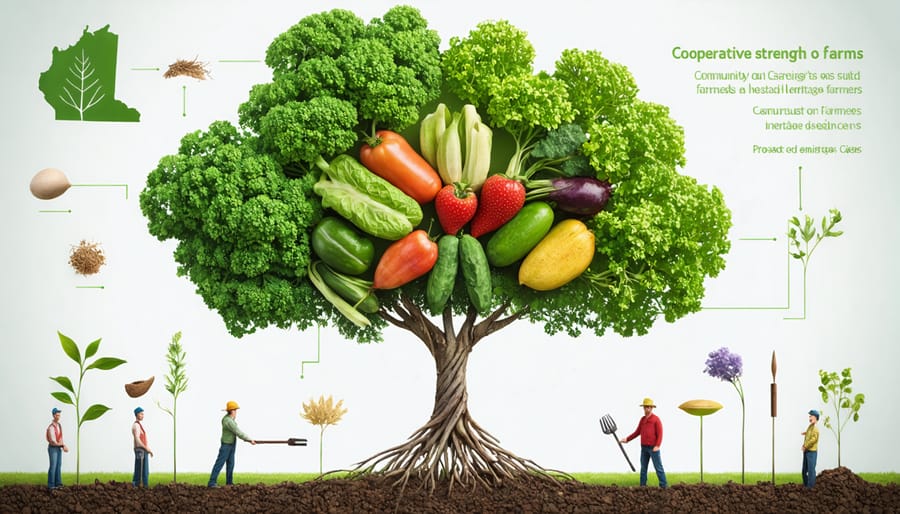Transform your farming operation with substantial organic certification funding through Canada’s Agricultural Clean Technology Program, offering up to $2 million for Alberta farmers transitioning to sustainable practices. Canadian agricultural grants currently support over 5,700 organic producers, with funding opportunities expanding by 25% in 2024 to meet growing consumer demand for certified organic products.
Secure vital financial support through multiple channels, including the Canadian Agricultural Partnership (CAP) program’s dedicated organic stream, provincial ecological goods and services grants, and specialized funding for new farmers embracing organic methods. Recent success stories showcase Alberta producers leveraging these grants to offset certification costs, implement innovative soil management systems, and develop value-added organic products.
The timing couldn’t be better for organic transition support, with government initiatives allocating $560 million specifically for sustainable agriculture projects over the next five years. Whether you’re an established farmer looking to convert existing operations or a newcomer to organic agriculture, these grants provide essential capital for equipment upgrades, certification fees, and technical training necessary for successful organic production.
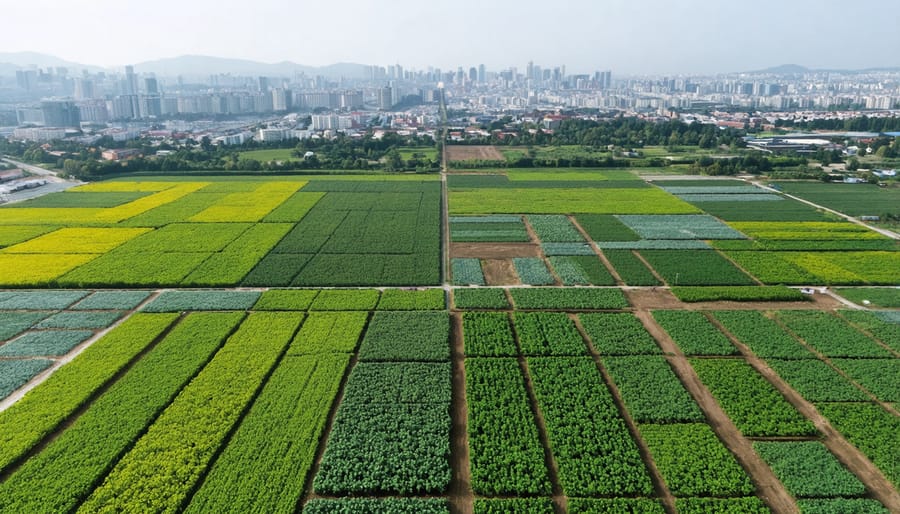
Current Grant Opportunities in Alberta’s Rural-Urban Farming Network
Provincial Grant Programs
Alberta offers several dedicated programs providing financial support for organic farms, making the transition to organic agriculture more accessible. The Canadian Agricultural Partnership (CAP) in Alberta offers grants of up to $100,000 for organic certification, equipment upgrades, and soil improvement projects.
The Environmental Stewardship and Climate Change Producer Program stands out, offering cost-sharing opportunities of up to 70% for projects that enhance sustainable farming practices. Organic producers can access funds for soil conservation, water management, and biodiversity enhancement initiatives.
Alberta’s Organic Producer Assistance Program provides specific support for certification costs, covering up to $1,000 of initial organic certification expenses. First-time applicants receive priority consideration, encouraging new entries into organic farming.
The Future Agriculture Producer Program supports young farmers under 40, offering matched funding up to $50,000 for organic transition projects. This initiative particularly benefits those incorporating innovative sustainable practices into their operations.
Local agricultural societies across Alberta also provide smaller grants ranging from $5,000 to $25,000 for community-based organic farming initiatives. These programs often focus on educational components and market development opportunities.
To maximize success rates, applicants should emphasize environmental benefits and community impact in their proposals. The Alberta Organic Producers Association offers free guidance for grant applications, including proposal review services and mentorship connections.
Federal Partnership Funding
The Government of Canada offers several partnership funding programs specifically designed to support organic farming initiatives that bridge rural and urban agricultural interests. Through Agriculture and Agri-Food Canada (AAFC), farmers can access the Canadian Agricultural Partnership (CAP) program, which provides up to $500,000 in matching funds for innovative organic farming projects that demonstrate clear urban-rural collaboration.
A standout opportunity is the Agricultural Clean Technology Program, offering funding between $50,000 and $2 million for organic farmers implementing sustainable practices that benefit both rural operations and urban food security. The program particularly favours projects that demonstrate knowledge sharing between rural producers and urban consumers.
The Federal-Provincial-Territorial cost-shared programs provide additional support, with Alberta farmers eligible for enhanced funding when their projects include urban partnership components. Recent successful initiatives include collaborative farmers’ markets, educational programs connecting city schools with organic farms, and shared processing facilities serving both rural producers and urban food businesses.
To maximize chances of approval, applications should emphasize how the project strengthens rural-urban agricultural connections. Key elements to highlight include sustainable farming practices, local food system development, and measurable community benefits. The AAFC regional office in Alberta provides dedicated support to help farmers navigate these opportunities and develop strong proposals that align with federal priorities for agricultural advancement.
Success Stories: Partnership Models That Secured Funding
Edmonton’s Urban-Rural Connection Project
Edmonton’s innovative rural-urban farming partnerships have created a remarkable success story in Alberta’s agricultural landscape. The Urban-Rural Connection Project, launched in 2019, has successfully bridged the gap between city-based organic farmers and their rural counterparts, resulting in a 40% increase in organic produce availability across the region.
The project pairs urban farmers operating on small plots within Edmonton’s city limits with established organic producers in surrounding rural areas. These partnerships have proven particularly beneficial for new farmers, who gain invaluable mentorship while accessing shared resources and equipment.
One standout example is the collaboration between Sarah Chen, an urban farmer operating a 0.4-hectare plot in Edmonton’s Riverdale neighborhood, and the Thompson Family Farm, located 30 kilometers outside the city. Through their partnership, Chen gained access to cold storage facilities and processing equipment, while the Thompsons expanded their distribution network into urban farmers’ markets.
The initiative has attracted $2.5 million in grant funding over three years, supporting 15 urban-rural partnerships. Participating farmers report an average 30% reduction in operational costs through shared resources and bulk purchasing power. The program has also established a knowledge-sharing network, connecting over 100 farmers through monthly workshops and seasonal planning sessions.
Key success factors include:
– Shared transportation and distribution systems
– Collaborative marketing efforts
– Combined CSA (Community Supported Agriculture) programs
– Joint certification applications
– Mentorship opportunities for new farmers
The project demonstrates how strategic partnerships can maximize grant funding impact while building stronger, more resilient local food systems.
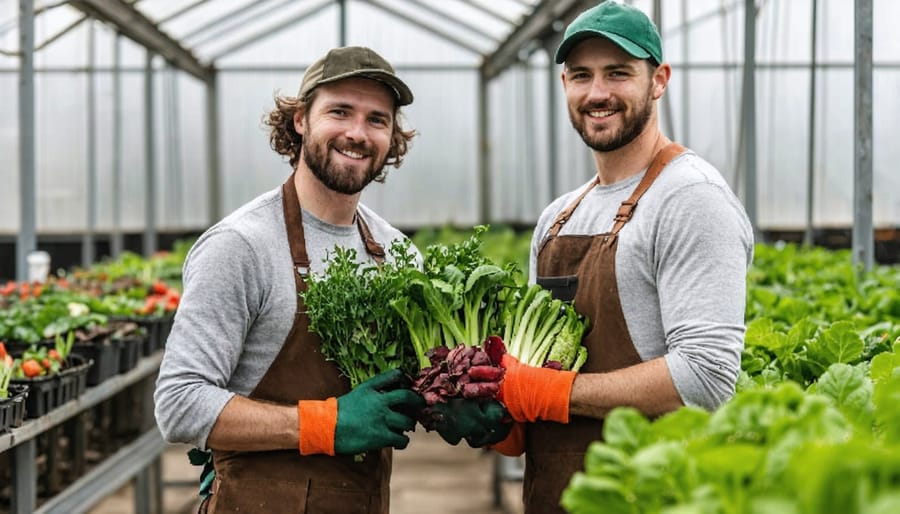
Calgary’s Farm-to-Table Initiative
In 2021, Calgary’s innovative Farm-to-Table Initiative revolutionized the relationship between urban restaurants and rural organic farms through strategic grant funding. The program, which allocated $2.5 million in matching grants, facilitated partnerships between 15 downtown Calgary restaurants and organic farmers within a 150-kilometer radius.
The success of these partnerships demonstrated the vital importance of transitioning between urban and rural farming communities. Participating restaurants received up to $75,000 in matching funds to establish direct purchasing agreements with local organic farms, while farmers accessed additional funding for infrastructure improvements and organic certification costs.
Notable success stories include The Riverside Kitchen’s partnership with Blue Mountain Organic Farm, which increased their revenue by 40% in the first year. The grant enabled Blue Mountain to invest in cold storage facilities and expand their growing capacity, while The Riverside Kitchen developed a rotating seasonal menu featuring locally sourced ingredients.
The initiative’s framework required participating restaurants to commit to purchasing at least 60% of their produce from partner farms for a minimum of two years. Farmers, in turn, worked closely with chefs to plan crop rotations and adjust growing schedules to meet restaurant demands.
The program’s success has led to its expansion in 2023, with an additional $3 million in funding available for new partnerships. Current grant recipients report strengthened community ties, reduced transportation costs, and increased customer satisfaction. The initiative serves as a model for other Canadian cities looking to strengthen their local food systems while supporting organic agriculture.
Building Your Grant Application Strategy
Key Elements of Successful Applications
Creating successful grant applications requires careful attention to detail and a thorough understanding of what funding organizations are looking for. Start by clearly outlining your farm’s mission and alignment with sustainable agriculture practices. Focus on demonstrating both environmental and economic viability in your proposal.
Documentation is crucial – maintain detailed records of your current farming practices, soil health reports, and financial projections. Include specific metrics about your farm’s size, current production levels, and projected growth. Canadian grant reviewers particularly value evidence of community impact and job creation potential.
Your business plan should be comprehensive yet concise, typically spanning 3-5 pages. Include realistic timelines for implementation and clear milestones. Budget presentations must be precise, with itemized costs and justified expenses. Remember to highlight your farm’s unique aspects and innovation in organic practices.
Letters of support from local agricultural organizations, community partners, or established organic farmers can significantly strengthen your application. Consider including photographs of your farm and any existing organic certification documentation.
Address potential challenges openly and provide solutions, showing that you’ve thoroughly considered risk management. Demonstrate your commitment to ongoing learning by mentioning relevant training or workshops you’ve attended.
Remember to proofread extensively and submit well before deadlines. Many successful Alberta farmers recommend having a peer review your application before submission. Follow up with any additional documentation promptly if requested by the grant organization.
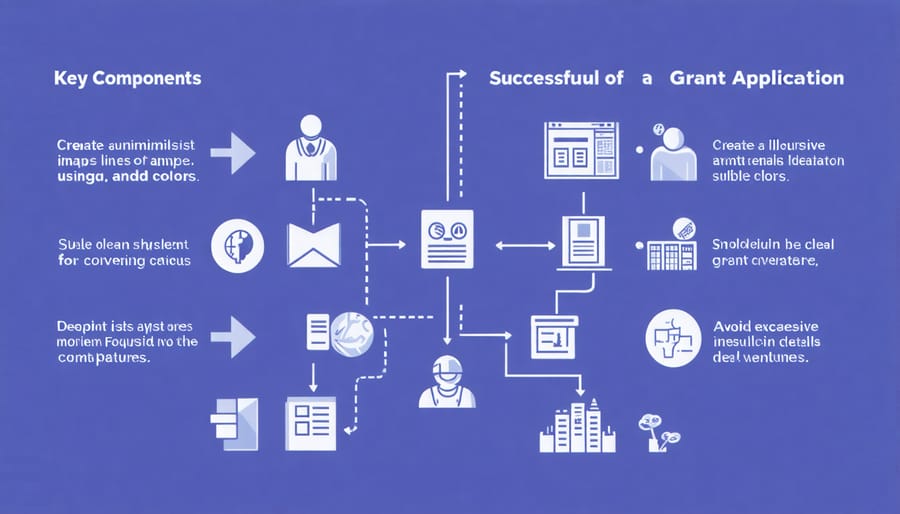
Partnership Development Guidelines
Building strong rural-urban partnerships is essential for securing organic farm grants and creating sustainable agricultural networks. Start by identifying potential urban partners, such as farmers’ markets, food co-ops, restaurants, and educational institutions that align with your organic farming values and goals.
Document your partnership strategy by creating a clear memorandum of understanding (MOU) that outlines roles, responsibilities, and mutual benefits. Include specific details about produce supply agreements, educational programs, or community engagement initiatives that demonstrate the partnership’s value to grant assessors.
Establish regular communication channels with your urban partners through monthly meetings or quarterly reviews. This helps maintain transparency and ensures both parties remain committed to shared objectives. Consider using digital platforms to streamline communication and document progress, especially valuable for grant reporting requirements.
Create measurable outcomes for your partnerships, such as the number of urban consumers reached, volume of organic produce supplied, or educational workshops conducted. These metrics strengthen grant applications by showing tangible community impact.
For example, the Growing Together Initiative in Red Deer successfully paired five organic farms with urban schools, creating educational programs that reached over 500 students while securing substantial grant funding.
Remember to engage local agricultural extension offices and organic farming associations when developing partnerships. These organizations often provide valuable networking opportunities and can connect you with established urban partners.
Document all partnership activities, including photos, testimonials, and impact reports. This documentation serves dual purposes: fulfilling grant requirements and building credibility for future funding applications. Consider creating case studies of successful collaborations to share with potential partners and grant providers.
Keep partnerships focused on mutual growth and community benefit rather than just meeting grant requirements. This authentic approach typically leads to more sustainable relationships and increased success in securing organic farm grants.
Common Pitfalls to Avoid
Drawing from our experience supporting Alberta farmers, we’ve identified several common mistakes that can derail organic farm grant applications. Being aware of these pitfalls can significantly improve your chances of success.
One frequent error is submitting incomplete documentation. Many applicants overlook essential paperwork like soil test results, financial statements, or organic certification records. Always double-check the required documents list and maintain a detailed checklist.
Poor budget planning is another stumbling block. Some farmers underestimate project costs or fail to include contingency funds. Create realistic budgets that account for inflation and potential setbacks, and ensure all expenses align with grant guidelines.
Waiting until the last minute to apply often leads to rushed, subpar applications. Start gathering materials at least three months before deadlines, allowing time for thorough research and professional review.
Many applications lack clear metrics for measuring success. Instead of general statements, provide specific, measurable outcomes: “Increase organic vegetable production by 30% within two years” rather than “boost farm output.”
Overlooking partnership opportunities can weaken applications. Many grant programs favour collaborative projects that benefit multiple stakeholders. Consider partnering with local food cooperatives, agricultural societies, or research institutions.
Missing follow-up requirements after receiving funding is another common issue. Create a compliance calendar to track reporting deadlines and maintain detailed records of all grant-related activities and expenditures.
Securing organic farm partnership grants represents a significant opportunity for Canadian farmers to advance their sustainable agriculture goals while building meaningful connections between rural and urban communities. Throughout this guide, we’ve explored various funding programs, application strategies, and success stories that demonstrate the transformative potential of these partnerships.
Remember that successful grant applications require thorough preparation, clear vision, and strong collaborative relationships. Take time to develop comprehensive business plans, gather required documentation, and build genuine partnerships with urban organizations that share your commitment to sustainable agriculture.
The journey toward organic certification and sustainable farming practices may seem challenging, but the support available through these grant programs can make a substantial difference. Whether you’re a small-scale family farm in rural Alberta or a larger operation looking to transition to organic methods, there’s likely a grant program that aligns with your goals.
Don’t hesitate to reach out to local agricultural organizations, experienced grant writers, or successful grant recipients in your community. Their insights and support can prove invaluable throughout the application process. Consider joining organic farming associations and attending workshops to network with like-minded farmers and potential urban partners.
Take the first step today by reviewing the grant opportunities that best match your farm’s needs and begin building the partnerships that will strengthen your application. The future of sustainable agriculture in Canada depends on innovative farmers like you taking action to bridge the rural-urban divide while advancing organic farming practices.

